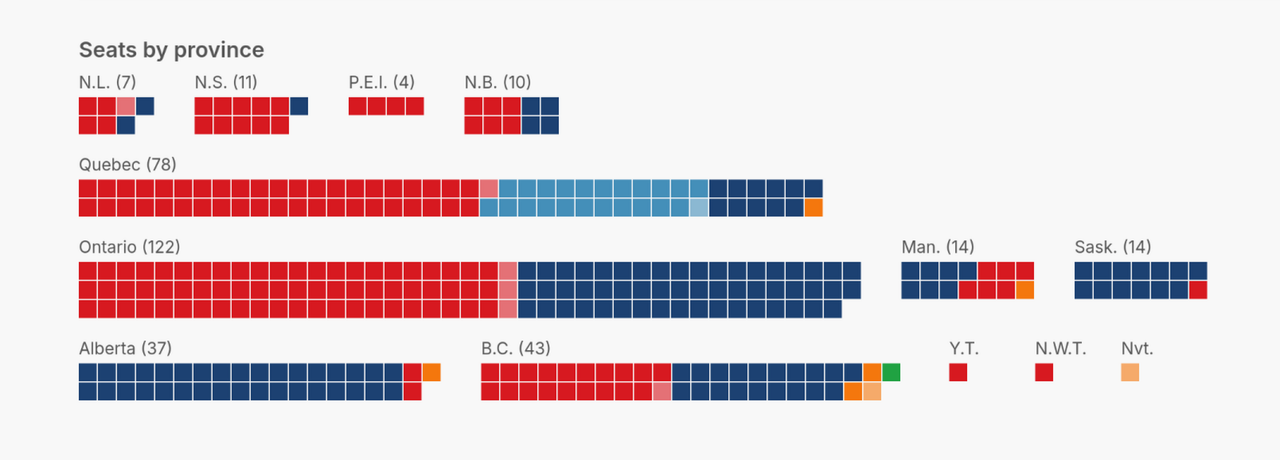the CBC Decision Desk are watching 11 ridings in particular before making a call on a majority or minority government.
They are all ridings where the Liberals are currently in second place. Last night, they went from 163 projected seats to 168 as advance and special ballots were counted, in some cases making up several hundred or even 1,000-vote deficits — so these could flip. The Liberals need four of the following 11 ridings to do that.
Terrebonne in Quebec: It is the closest race in the country right now, where the Bloc is leading the Liberals by 28 votes. Two polls are left to report, which could be 880 votes.
Nunavut: There is a 54-vote margin with at least 647 votes to come.
Vancouver Kingsway: The NDP’s Don Davies is leading the Liberals by 308 votes.
Windsor-Tecumseh-Lakeshore (Ontario): The Liberals are trailing by 359 votes and we are expecting at least 3,500 special ballots there.
Miramichi Grand Lake (New Brunswick): There is a 394-vote margin here. One of the two special ballot polls has reported, where at least 2,700 special ballots were cast.
Milton East Halton Hills South (Ontario): Former Ontario Progressive Conservative cabinet minister Parm Gill is leading the Liberal candidate by 556 votes. Again, one of the two special ballot polls reported and at least 2,800 special ballots were cast.
Shefford (Quebec): Here, there is a 651-vote margin for the Bloc. The Liberals were in the lead for part of last night. Again, one of the two special ballot polls reported and there were at least 1,800 special ballots cast.
Cloverdale Langley City (B.C.): This is a large margin, at 923 votes. But neither of the special polls have reported and there are at least 5,500 votes in those polls.
Kitchener South Hespeler (Ontario): Conservatives are leading the Liberals by a little more than 1,100 votes with one of the special polls having reported — and 3,000 special ballots were cast.
Pitt Meadows-Maple Ridge (B.C.): Right now the Liberals are trailing by 1,400 votes, but they were trailing by 2,500 votes last night and there are still eight polls yet to report.
Hamilton East Stoney Creek (Ontario): The incumbent Liberal is trailing right now by 1,500 votes. At one point last night, the Liberals were trailing by 3,000 votes. They’ve now cut that in half, and there are still six polls left to report, including a minimum of 4,800 special ballots.
The Liberals also need to hold the two races where they have a close lead — Kelowna and Terra Nova The Peninsulas, in Newfoundland and Labrador.
Canada election: Vote counting resumes with some key races still too close to call | CBC
Not sure what CTV were thinking when they called minority with this many seats in play 
